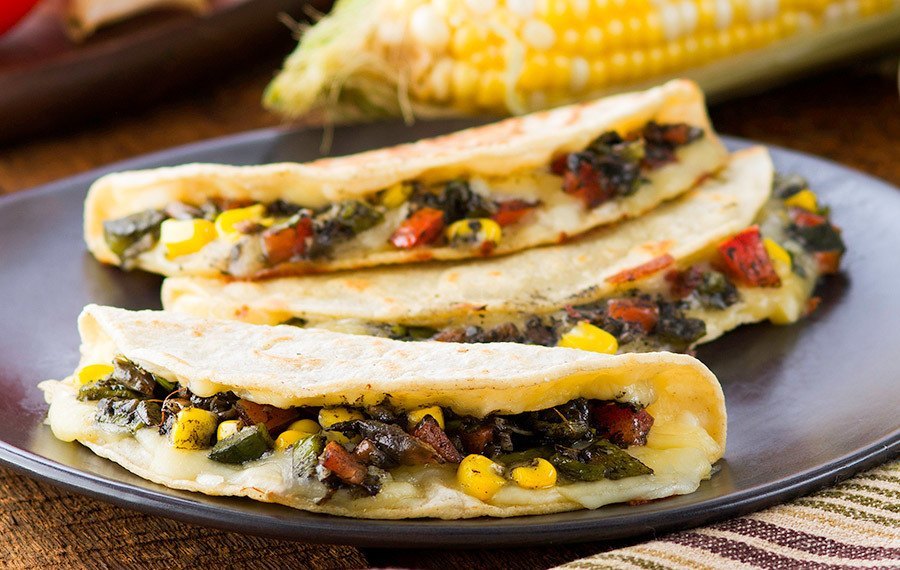Quesadillas are a popular Mexican dish that consists of a tortilla filled with melted cheese and various ingredients such as meats, vegetables, and spices. While they are commonly found in Mexican restaurants and fast-food chains worldwide, the quesadilla has a rich history and cultural significance that goes beyond just a tasty snack or meal.
The Origin of Quesadillas
In Mexico City and surrounding towns, the quesadilla is known as a corn tortilla filled with cheese or other ingredients that are eaten hot, meaning that cheese is not essential for it to be a quesadilla. In fact, the RAE (Royal Spanish Academy) defends this definition.
But the Mexican population that does not reside in the center and surroundings of the Mexican Republic does not agree with this definition, for them, the quesadilla is a corn tortilla filled with cheese as an indispensable requirement and can be filled with other ingredients, but cheese is necessary for it to be a quesadilla.
Some say the word “quesadilla” is derived from the Spanish word “queso,” meaning cheese. It is believed that the dish originated in central Mexico in the state of Oaxaca, where cheese was a common ingredient in many local dishes. The original quesadilla was made with a blue corn tortilla filled with cheese and folded in half, then cooked over a comal, a traditional Mexican flat griddle.
But it was in 1872 when Narciso Bassols published one of the oldest known recipe books, ‘La cocinera poblana o El libro de las familias‘, which, according to an article by the Benemérita Universidad Autónoma de Puebla, is considered the origin of the ‘típico poblano’.
Among its more than two thousand recipes compiled, it mentions in two entries this little snack: “Quesadillas are so common that there is no corner where they cannot be bought, which avoids making them as a family. However, we will talk about them keeping in mind that they are not available everywhere when you want them,” he describes.
Thus, the recipe book details that the quesadillas of the time were made with tortilla dough and were generally filled with ground pork rinds, toasted pasilla chili, a little bit of epazote and salt. Once the filling was in place, they were folded in half and the edges were glued to fry them in lard and eaten right away, before they became hard. To the surprise of pro-cheese quesadillas, this ingredient is not mentioned as a must.
Over time, quesadillas evolved to include a variety of fillings, including meats, beans, and vegetables. They also became popular in other regions of Mexico and eventually spread throughout North and Central America.

Cultural Significance of Quesadillas
Quesadillas are more than just a delicious food; they hold cultural significance in Mexican cuisine and society. In Mexico, quesadillas are often eaten as a midday snack or a light meal, and they are also a popular street food sold by vendors in markets and on street corners.
In addition to their cultural significance, quesadillas have become a symbol of Mexican identity and heritage. They are often associated with Mexican festivals and celebrations, such as Cinco de Mayo and Dia de los Muertos. Quesadillas are also an important part of traditional Mexican cuisine and are frequently served at family gatherings and other special occasions.
Variations of Quesadillas
While the traditional quesadilla is made with a tortilla and cheese, there are many variations of the dish that include different ingredients and cooking methods. Some popular variations of quesadillas include:
- Quesadillas de Flor de Calabaza: A vegetarian version made with squash blossoms and Oaxacan cheese.
- Quesadillas de Tinga: Made with shredded chicken in a tomato-chipotle sauce.
- Quesadillas de Rajas: Filled with strips of roasted poblano peppers and cheese.
- Quesadillas Fritas: Deep-fried quesadillas that are crispy and golden on the outside.
TYT Newsroom


